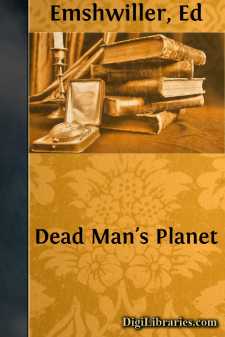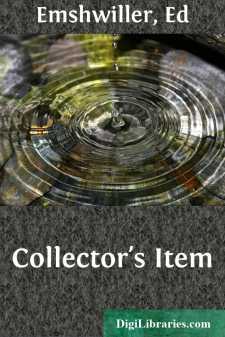Categories
- Antiques & Collectibles 13
- Architecture 36
- Art 48
- Bibles 22
- Biography & Autobiography 813
- Body, Mind & Spirit 142
- Business & Economics 28
- Children's Books 15
- Children's Fiction 12
- Computers 4
- Cooking 94
- Crafts & Hobbies 4
- Drama 346
- Education 46
- Family & Relationships 57
- Fiction 11828
- Games 19
- Gardening 17
- Health & Fitness 34
- History 1377
- House & Home 1
- Humor 147
- Juvenile Fiction 1873
- Juvenile Nonfiction 202
- Language Arts & Disciplines 88
- Law 16
- Literary Collections 686
- Literary Criticism 179
- Mathematics 13
- Medical 41
- Music 40
- Nature 179
- Non-Classifiable 1768
- Performing Arts 7
- Periodicals 1453
- Philosophy 64
- Photography 2
- Poetry 896
- Political Science 203
- Psychology 42
- Reference 154
- Religion 513
- Science 126
- Self-Help 84
- Social Science 81
- Sports & Recreation 34
- Study Aids 3
- Technology & Engineering 59
- Transportation 23
- Travel 463
- True Crime 29
The Worshippers
by: Ed Emshwiller
Categories:
Description:
Excerpt
It was a very different thing, Algernon Weaver decided, actually to travel in space. When you read about it, or thought about it in terms of what you read, it was more a business of going from one name to another. Algol to Sirius. Aldebaran to Epsilon Ceti. You read the names, and the descriptions that went with them, and the whole thing—although breathtaking in concept, of course, when you really stopped to meditate on it—became rather ordinary and prosaic and somehow more understandable.
Not that he had ever approved. No. He had that, at least, to look back upon; he had seen the whole enterprise as pure presumption, and had said so. Often. The heavens were the heavens, and Earth was Earth. It would have been better—much better for all concerned—if it had been left that way.
He had held that opinion, he reminded himself gratefully, from the very beginning, when it was easy to think otherwise. Afterward, of course—when the first star ships came back with the news that space was aswarm with creatures who did not even resemble Man, and had never heard of him, and did not think much of him when they saw him.... Well, who but an idiot could hold any other opinion?
If only the Creator had not seen fit to make so many human beings in His image but without His common sense....
Well, if He hadn't then for one thing, Weaver would not have been where he was now, staring out an octagonal porthole at an endless sea of diamond-pierced blackness, with the empty ship humming to itself all around him.
It was an entirely different thing, he told himself; there were no names, and no descriptions, and no feeling of going from one known place to another known place. It was more like—
It was like standing outdoors, on a still summer night, and looking up at the dizzying depths of the stars. And then looking down, to discover that there was no planet under your feet—and that you were all alone in that alien gulf....
It was enough to make a grown man cry; and Weaver had cried, often, in the empty red twilight of the ship, feeling himself hopelessly and forever cut off, cast out and forgotten. But as the weeks passed, a kind of numbness had overtaken him, till now, when he looked out the porthole at the incredible depth of sky, he felt no emotion but a thin, disapproving regret.
Sometimes he would describe himself to himself, just to refute the feeling that he was not really here, not really alive. But his mind was too orderly, and the description would come out so cold and terse—"Algernon James Weaver (1942- ) historian, civic leader, poet, teacher, philosopher. Author of Development of the School System in Schenectady and Scoharie Counties, New York (pamphlet, 1975); An Address to the Women's Clubs of Schenectady, New York (pamphlet, 1979); Rhymes of a Philosopher (1981); Parables of a Philosopher (1983), Reflections of a Philosopher (1986). Born in Detroit, Michigan, son of a Methodist minister; educated in Michigan and New York public schools; B.A., New York State University, 1959; M.A., N.Y.S.U. Extension, 1964. Unmarried. Surviving relatives—"
That was the trouble, it began to sound like an obituary. And then the great humming metal shell would begin to feel like a coffin....
Presumption. Pure presumption. None of these creatures should have been allowed to get loose among the stars, Man least of all. It cluttered up the Universe. It undermined Faith. And it had got Algernon Weaver into the devil of a fix.
It was his sister's fault, actually....












